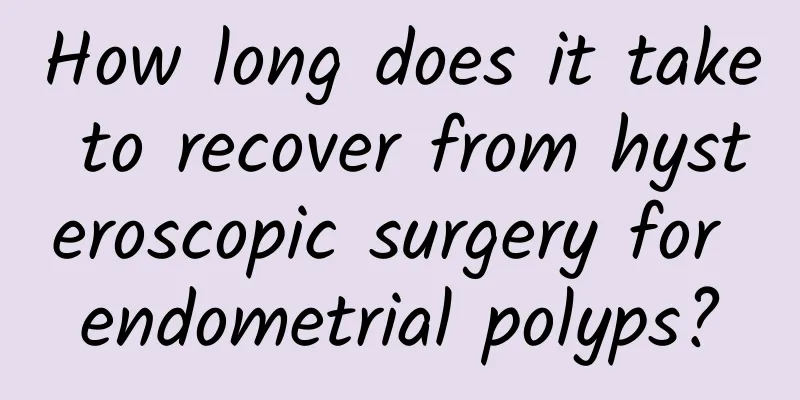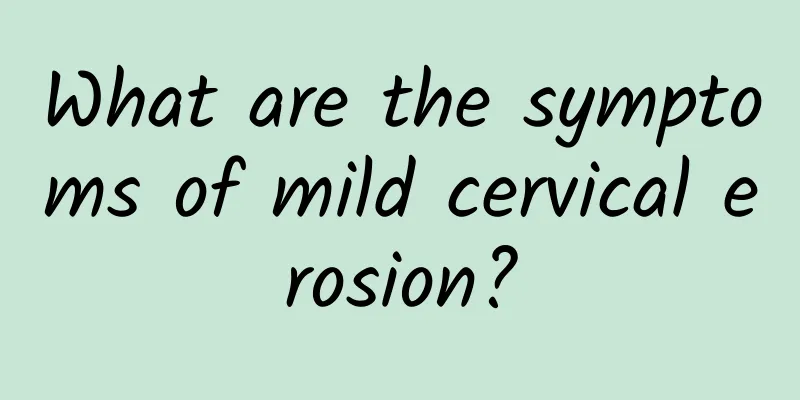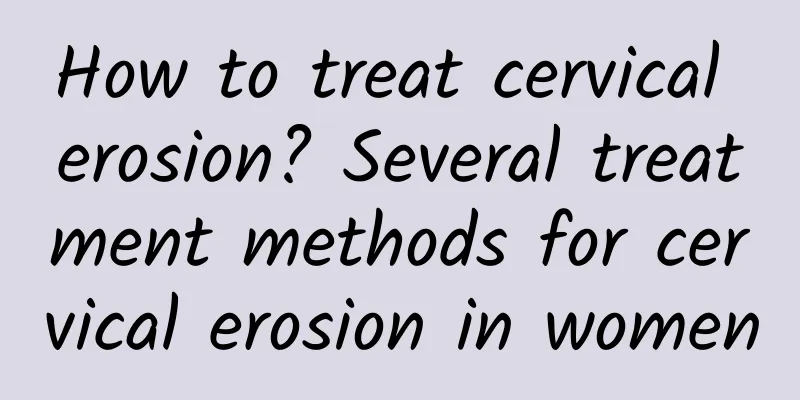How long does it take to recover from hysteroscopic surgery for endometrial polyps?

|
It usually takes 1-2 weeks to return to normal life after hysteroscopic surgery for endometrial polyps, and full recovery may take about 1 month. The recovery time after surgery varies depending on individual constitution, the extent of surgery, and postoperative care. 1. Postoperative recovery time Hysteroscopic surgery is a minimally invasive surgery with less trauma. Most patients can return to normal life within 1-2 weeks after surgery. There may be mild abdominal pain and a small amount of bleeding on the day of surgery, which usually subsides within 2-3 days. It takes about 1 month to fully recover, and strenuous exercise and sexual intercourse should be avoided during this period. 2. Postoperative care measures Postoperative care is essential for recovery. Patients need to rest and avoid heavy lifting and strenuous exercise. The diet should be light and rich in protein and vitamins, such as eggs, fish, fresh vegetables and fruits. Avoid bathing in a tub within 2 weeks after surgery and keep the vulva clean to prevent infection. 3. Postoperative drug treatment To prevent infection and promote recovery, doctors usually prescribe antibiotics, such as cephalosporins or amoxicillin, for 3-5 consecutive days. To prevent the recurrence of polyps, progestin drugs, such as dydrogesterone or progesterone, may be used and taken regularly as prescribed by the doctor. 4. Postoperative follow-up A follow-up examination is required one month after surgery, including ultrasound examination and hysteroscopy to evaluate the effect of the surgery and the recovery of the endometrium. If there is abnormal bleeding or persistent abdominal pain, seek medical attention immediately. Recovery after hysteroscopic surgery for endometrial polyps is relatively fast, but you need to strictly follow the doctor's advice for postoperative care and follow-up. Maintaining a good lifestyle will help promote recovery and reduce the risk of recurrence. Avoid strenuous exercise and sexual intercourse within 1 month after surgery, and have regular follow-up to ensure good health. If you feel unwell, communicate with your doctor in time. |
>>: Can cervical erosion be used to detect pregnancy?
Recommend
What should I do if I have habitual miscarriage? Doctors recommend these 5 methods
Many women suffer from habitual miscarriage. In f...
Fluid-filled pelvic mass after menopause
If a pelvic fluid mass appears after menopause, u...
Can Trichomonas vaginitis heal itself?
Trichomonas vaginitis usually cannot heal itself ...
What are the symptoms of uterine fibroids? What will happen if uterine fibroids grow
What are the symptoms of uterine fibroids? What w...
Does ovarian cyst affect fertility?
The ovaries are an important part of the female r...
How to do post-abortion care
Abortion is suitable for many women in life, but ...
What are the clinical manifestations of cervical erosion?
If you have cervical erosion, you should actively...
Supermodel Gisele Bundchen practices yoga to maintain her S-curve
Gisele Bundchen has been named the world's ri...
What diseases can premature ovarian failure prevent?
What diseases can premature ovarian failure preve...
Women who get cold at night are more likely to develop pelvic inflammatory disease? Gynecological inflammation is prone to recurrence in autumn
Pelvic inflammatory disease is a common gynecolog...
Do cervical polyps require surgery? Generally, surgical treatment
In recent years, the incidence of cervical polyps...
6 major reasons for infertility caused by artificial abortion
Artificial abortion is a remedy that is taken as ...
What should patients with uterine fibroids eat after surgery? What foods should patients with uterine fibroids not eat?
What should patients with uterine fibroids eat af...
Eat this way to lose weight! Breakfast, lunch and dinner diet secrets revealed
Did you know that the amount of gastric acid secr...
What are the preventive measures for dysmenorrhea?
Dysmenorrhea is a very common disease in life. Ma...









